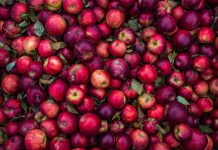
What foods can I eat when I have a cold?
COLDS, UPPER RESPIRATORY INFECTIONS:
- Drink plenty of hot liquids. Water, tea, fruit juice, fruit drinks, warm gelatin or broth-based soups. Hot liquids help thin mucous secretions and drain mucous secretions faster. Cold liquids like iced carbonated beverages slow the draining of mucous secretions. Chicken noodle soup has been shown to be better at thinning and draining mucous secretions. Remember to hold your head over hot, steaming liquids while you drink.
- Fruit juice or drinks can be thinned with more water to increase tolerance.
- Flavored gelatin can be prepared with water or fruit juice and drank as a liquid rather than waiting for the gelatin to set.
- Drink dairy products like cream-based soups, ice cream, pudding or milk as they don’t increase phlegm or upper respiratory tract symptoms.
- Any other foods are allowed as long as you tolerate them. Tolerate means a food does not cause vomiting, diarrhea or allergic reaction.
- Your sense of taste may be off since your nasal passages are plugged. Don’t be surprised if some of your favorite foods don’t taste the same.
- Remember to get plenty of rest. If you are having problems getting to sleep, switch to decaffeinated tea, herbal tea or decaffeinated carbonated beverages.
- Wash your hands for at least 20 seconds with soap to prevent the spread of the cold virus or upper respiratory infections. Use the paper towels you dry your hands with to turn off the water faucet and open the door to bathrooms. Research has shown that aerosol (sneezing), direct hand-to-hand contact, door handles, pens, light switches, TV remote controls, faucets, telephones, and toys are mostly responsible for increasing exposure to the cold rhinovirus for up to 18 hours at room temperature after a person with a cold has touched them. Touching your eyes or nose after touching an infected surface will increase the likelihood of your getting a cold. Use of alcohol hand sanitizers is effective at reducing exposure to the cold virus during the cold season. Keep your distance from people with a cold.
- Wash all eating or drinking utensils in hot soapy water or in a dishwasher after each use. Use glasses and silverware once then wash to limit the spread of the virus. Remember to wash the bathroom drinking cup too. If you are too sick to wash dishes, use disposable dishes, cups, and silverware.
- If you have a cold, stay home rather than spreading the cold virus at work or school.
- Call your doctor for their recommendations to treat cold symptoms.
- If your cold is accompanied by a fever, contact your doctor.
- Sneeze into your sleeve rather than a disposable tissue or handkerchief to limit the spread of the cold virus.
- If your cold has lasted more than 7 days or your mucous secretions are any color other than clear or white, contact your doctor.
- As your cold symptoms lessen, gradually increase your food intake back to normal for you. Your appetite for food should increase as you get better.

